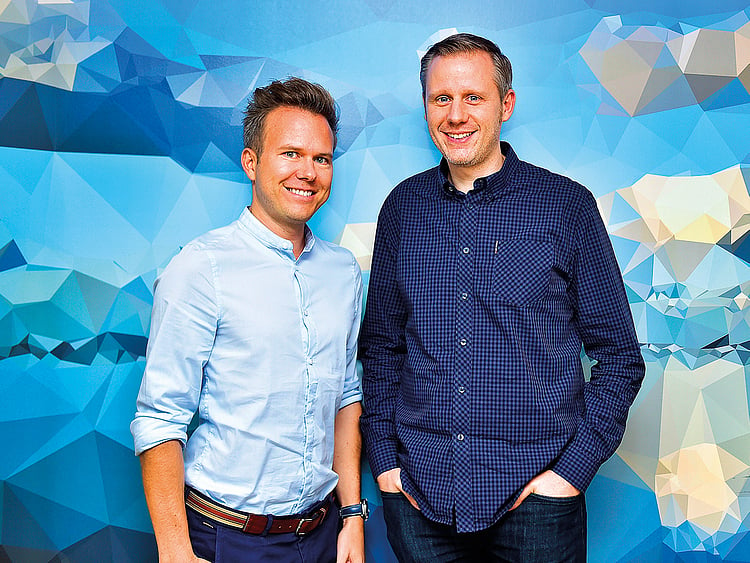Spotify launches in the UAE, Middle East and North Africa
The music platform will be half as expensive as in US, UK

Dubai: Music streaming service Spotify has said it will launch in the UAE and throughout the Middle East and North Africa on Wednesday, offering its full global library of songs.
The announcement ends months of speculation about when the platform would finally arrive in the region.
Gulf News first reported that the Swedish company was planning to launch across the entire region in November.
In an interview on Tuesday, Spotify executives told Gulf News that the platform’s premium service would be priced at Dh19.99, while it would continue offering a free version to users as well.
The price is around half of what users pay in countries like the UK, Sweden, France, and the US.
“We adapt the pricing to local standards. We wanted to make Spotify Premium available to as many people as possible,” said Michael Krause, Spotify’s managing director for Europe, the Middle East, and Africa.
Since launching in 2008, Spotify has expanded in to over 65 markets, gaining 87 million paid subscribers in the process.
Asked why it had taken so long for the company to launch in the region, Spotify’s regional managing director Claudius Boller said that it had taken time to solve licensing issues.
“I wouldn’t call it delayed, I think it’s perfect timing. You need to be 100 per cent ready for the market,” Boller said.
“We don’t believe the right approach is to just launch your international product.”
Boller added that Spotify had been slowly building its Arabic music library.
“We need to celebrate the Arabic music and the local cultures… and that requires quite some time,” he said.
By 2023, Morgan Stanley predicts Spotify will have 53 million paid subscribers in Asia, the Middle East and Africa, compared with just 11 million this year.
“It’s a huge market for us,” Krause said of the Middle East and North Africa.
But the company faces a challenging regional landscape.
“[Piracy] is still the majority of music usage” across the Middle East and North Africa, Krause said.
Data prices and connectivity issues also presented issues, Boller added.
“Smartphone penetration, internet penetration, data prices, are things we’re looking at… There’ll be some billing issues too that we need to overcome.”
When it becomes available this week, Spotify will join the likes of Apple Music, local player Anghami, and Deezer, which launched in the UAE last month.
Declining to talk about the company’s outlook on the wider market competition, Boller pointed instead to several differentiating factors: “What’s quite important is our music curation that we do here with the local team…catering to local cultures, including Egypt, the Levant, the Maghreb, and the Gulf. We really want to tailor the experience for the user.”
“On top of that,” he added, “we have a free offering… Anybody can try it and make up their mind.”
Spotify also claims to offer advanced music personalisation and discovery, by way of its machine learning engines.
The company also says it has better connectivity than its rivals. Spotify has so far partnered with the likes of Google and Samsung to offer its service on over 250 hardware devices.
Nevertheless, Krause said the bottom line was that the market was currently large enough to accommodate all of the competing services.
Ultimately, he said, “the market is so huge and so untapped that there is enough playground for many.”
“We’re happy there’s so much interest out there.”
In August, the Swedish company began searching for advertisers ahead of its roll out in the region, according to an internal email reviewed by Gulf News.
The company was looking for six brands to advertise, at a cost of $200,000 (Dh734,500) each.
Krause confirmed that Mercedes-Benz, Coca-Cola, Lipton and Hardees had chosen to place adverts on the platform.
Spotify’s business model relies on a combination of advertising and paid subscriptions.
As for the remaining markets of Syria, Iraq, Yemen, Libya, and Sudan, which the company will not launch into this week, Boller said that Spotify remained committed to expanding through the region as broadly as possible.
“We’d love to launch in those territories as soon as possible.”
Sign up for the Daily Briefing
Get the latest news and updates straight to your inbox
Network Links
GN StoreDownload our app
© Al Nisr Publishing LLC 2026. All rights reserved.